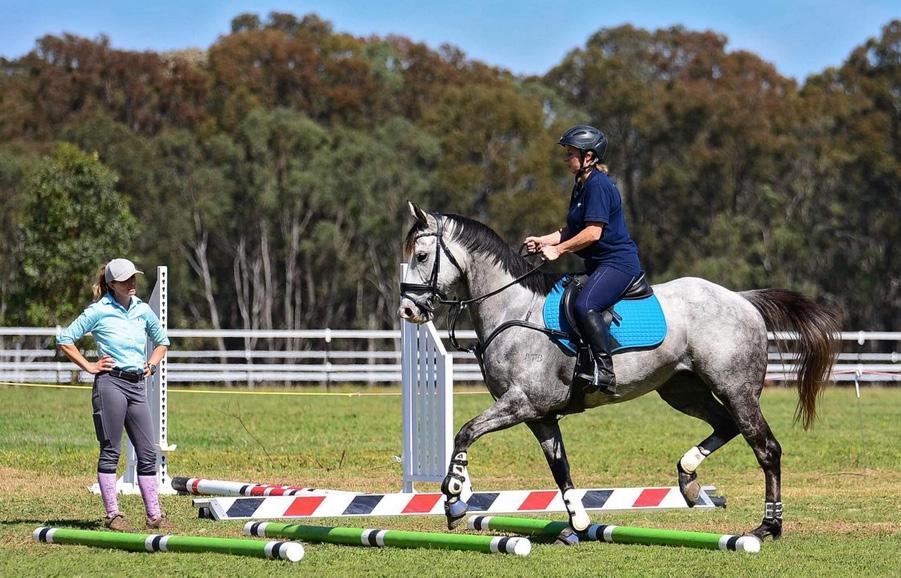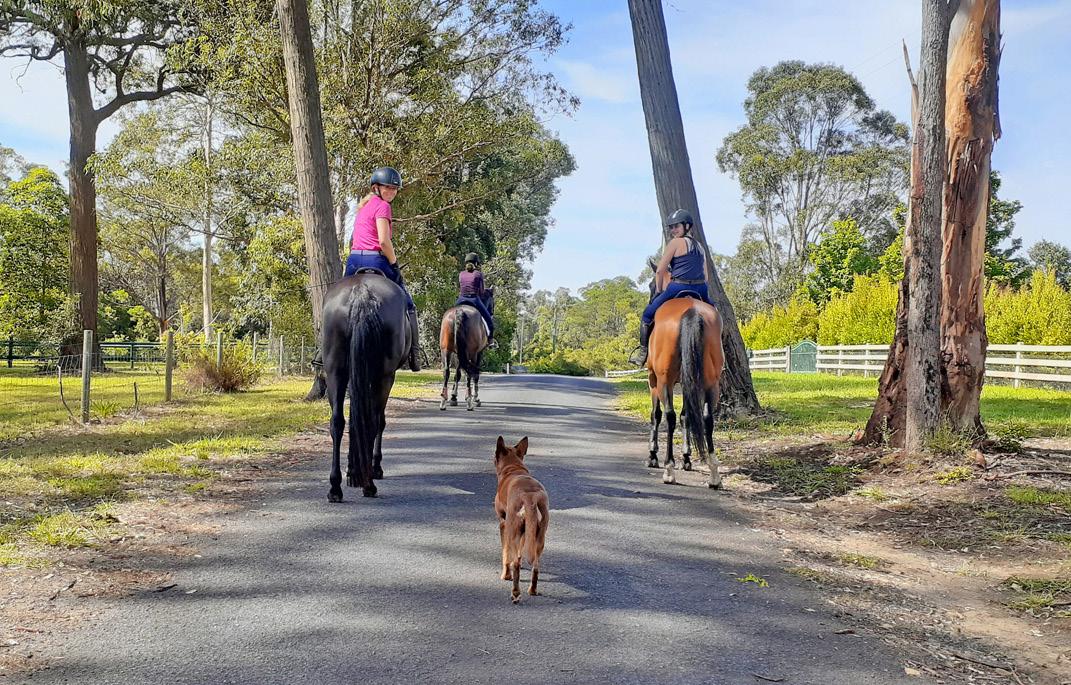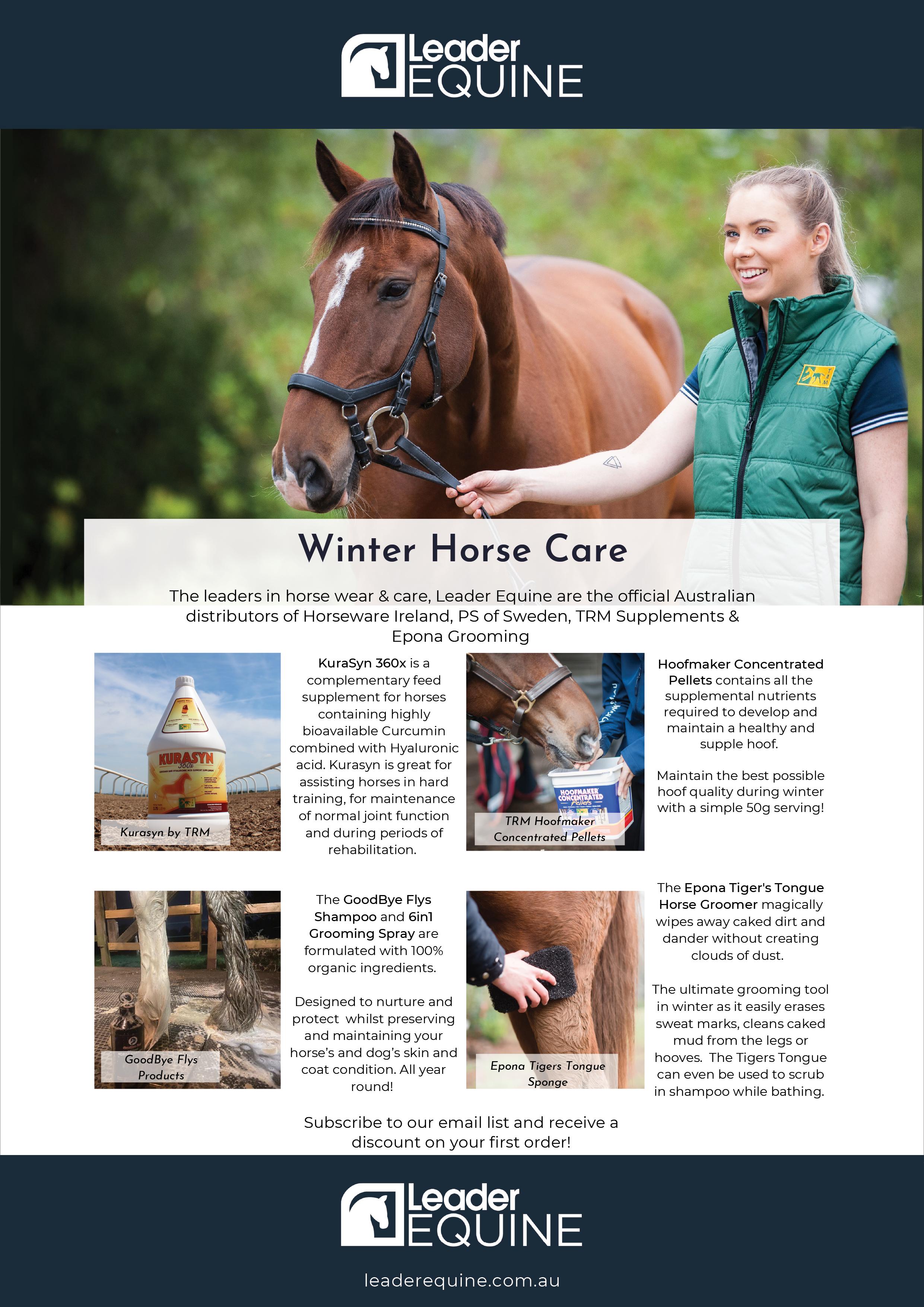
4 minute read
Coaching with Christine
COACHING WITH CHRISTINE
Kicking fear to the kerb
It’s a common theme, you love horses and you love riding. Well, you used to. CHRISTINE ARMISHAW explains what to do when fear comes calling.
You’ve come back to riding after some time off, but there seems to be an inexplicable block that’s holding you back. I hear this all the time with many adult clients I work with. Firstly, it’s important to note: you are not alone! Nerves and fear can crop up as you get older, you’re not quite as young, gung-ho and invincible as you were. The term for this is ‘wise’. You have work
commitments, a family, and a life outside of horses. Motherhood itself can be the The weight of responsibility for a new little human can send a wave of concern over you when it comes to hopping back in the saddle. Fortunately, once you realise this is largely a mind over matter situation, you can take back your power and revel in riding once again.
The right horse
Your equine partner is a big player in your day-to-day riding progress. It is imperative to have the right horse for your needs. If you are a person with nerves that get wound up tight, a chilled out, cruisy horse will be a better match for you. Some horses don’t give the rider’s tension much notice, but others sure do!
If you are looking for a new horse, don’t rush it. As a coach, I’m often called to help new clients who have bought horses that don’t match their current level of riding.
So don’t be in a hurry, choose the right horse. There’s no such thing as the perfect horse, every horse has quirks; you just have to decide if the quirks of this particular individual are ones you’re prepared and able to cope and work with. The 'one’ will come along. Even if

you have to wait months, the confidenceboosting payoffs are worth it.
Nerve-busting hacks
So, you’ve got a good, calm horse, but you’re still experiencing teeth-clenching, an increased heart rate and sweaty palms! Here are some psychological hacks to break through your mental barriers.
Before you mount up, take three big breaths. Not only does this bring your mind to the present, it also oxygenates your brain and enables you to make rational decisions.
Once mounted, sing a song out loud to keep you breathing properly.
Count your horse’s rhythm out loud, for example one-two, one-two in trot.
Talking and singing prevent you from slipping back to short, shallow breaths that happen automatically when you’re feeling fearful, and which subsequently exacerbate your fearfulness. Repeat any of these three breathing techniques the moment you feel anxiety creeping in.
Another great hack? Make little plans rather than riding randomly. Visualise a few moves, then ride them: straight, then left, straight, then right. Short lines, long lines – it really doesn’t matter what pattern you ride, more that you’ve thought it through in advance. Put a few poles out and ride over them; keep your brain engaged and present, rather than worrying about ‘what if’. From there, you can start to evaluate: Were you straight? Did the horse keep the rhythm? Were your corners angles, not curves? And then try again. The point is to plan ahead, give your brain constructive thoughts, and don’t ride around randomly like a leaf on the breeze waiting for something bad to happen.
Beat fear-induced procrastination
Have you ever thought about going riding, but suddenly an array of odd jobs or distractions steal your attention? This is your subconscious practicing its mysterious art of self-sabotage, where your fear and nerves try to run the show from the cheap seats. The fix? Put failsafe protocols in place.
Open your phone calendar and block out regular riding times. Don’t go nuts and schedule it every day of the week if that’s simply not possible. Start by blocking out time on one to three days per week and commit. Make it easy: if you’ll go riding straight after work, put your gear in your car; if you plan to ride in the morning, get dressed in your kit when you first wake up.
And in between times, get yourself out riding when you might otherwise not be bothered by arranging to ride with uplifting friends, have a weekly lesson, join a welcoming riding group or, if you’re competitive, scope out a local event to enter in six weeks' time. If you decide to compete, keep your nerves in check by entering classes that are a level lower than you are confidently training at. This gives you an added boost from the get-go, rather than entering the ring with self-doubt or dread.
Being on your horse should leave you with feelings of fun and happiness. That’s why we got into it in the first place. And by employing these nervekicking hacks, it’s what you can look forward to getting back too.
FACING PAGE: Commit to a weekly, confidence building lesson (Image by Melissa Goodson, Snapshotaustralia). ABOVE: Arrange to go out on a ride with uplifting friends.











